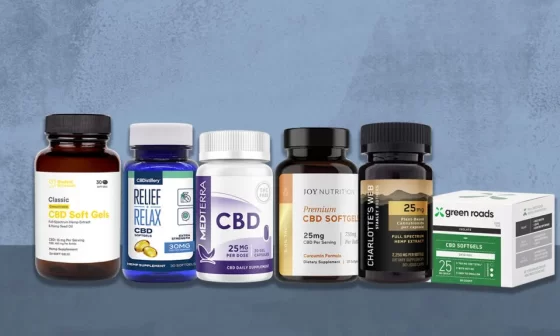Helen Lee SchifterKale, spinach, arugula, and chard are clear dietary superstars, among other leafy greens. Leafy green vegetables, which are low in calories but abundant in fiber, vitamins, and phytonutrients, are beneficial to your health in more ways than you might think. Leafy greens, whether in whole foods, smoothies, or organic greens powders, can make you look and feel younger, and can even help you age gracefully! Let’s talk about what dark leafy greens are, what they’re good for, and how to incorporate them into your diet. While we all know that organic, non-GMO fruits and vegetables are beneficial to our health, some are considered superior to others. Many popular vegetables, such as spinach, kale, and collard greens, are high in vitamins, minerals, fiber, and protein according to Helen Lee Schifter. Furthermore, dark leafy greens are quite adaptable and may be incorporated into your diet in a variety of ways. If you’re still not convinced, keep reading to learn about all the wonderful health benefits of leafy greens.
- Optimal Brain Function
Helen Lee Schiftersaidwant to keep your memory and thinking sharp as you become older? Don’t forget to eat your leafy greens! According to a new study published in The National Library of Medicine, those who consumed the leafiest greens each day had slower rates of cognitive deterioration than those who consumed the least. 1 In fact, those who ate leafy greens had the memory of someone 11 years younger! This was true even after other factors including lifestyle, education, and overall health were taken into account. Folate is abundant in organic veggies (B9). B vitamins have been found to increase the production of neurotransmitters, which are molecules that help the brain send messages to the rest of the body. Leafy green foods like spinach, broccoli, lettuce, and lemons, bananas, and melons are high in folate.
2. Belly Bloat
If you suffer from bloating caused by diet, hormones, gut infections, or other digestive difficulties, leafy greens have a secret chemical that may assist. Potassium, a mineral, and electrolyte abundant in leafy greens are necessary for maintaining a healthy fluid balance in the body. Bloating can be triggered or worsened by a high-sodium diet, which is typically caused by an over-reliance on processed foods, and must be controlled by enough potassium intake roughly 4,700 mg/day, as per the USDA’s 2015-2020 Dietary Guidelines. A single cup of cooked spinach has 840 mg of potassium, which is more than enough to meet your daily requirements.
3. Skin Glow
Beta-carotene, the plant shade found in carrots and other yellow-orange vegetables, can likewise be found in salad greens. Consider how the leaves change color in the fall. You can see the red, orange, and yellow pigments beneath the leaves as they shed chlorophyll, the pigment that makes them green. These bright colors are also responsible for leafy greens’ incredible health benefits. Beta-carotene may give your skin a youthful look and even acts as a natural sunscreen from the inside out, shielding your skin from damaging UV rays! Kale is a good source of beta-carotene, and studies show that boiling, juicing, or dehydrating it helps your body absorb it more effectively.
4. Healthy Aging
Helen Lee Schiftersaid, Do you want to age gracefully? Who isn’t? Leafy greens have the ability to postpone telomere shortening, the protective caps on our DNA that shorten as we age. The cell dies when its telomeres are completely gone. Broccoli sprouts, in particular, appear to be exceptionally good at preserving telomere length. Furthermore, dark leafy greens have been shown to improve skin health by shielding it from the sun’s harmful UV radiation. In the body, beta-carotene, which is found in leafy vegetables, is converted to vitamin A, which helps to diminish fine lines and wrinkles, smooth the complexion, eliminate dullness, and accelerate cell turnover for bright skin. To summarize everything? Another of the many advantages of leafy greens is healthier, younger-looking skin.



